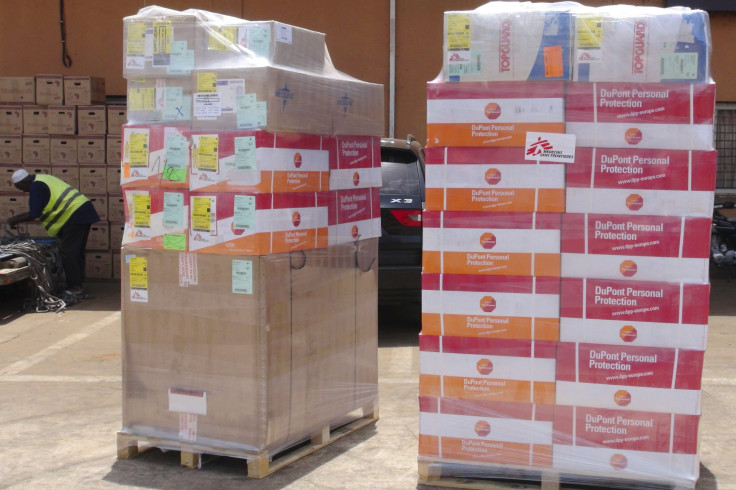Ebola Economics: Vacations, Vaccines And Very Expensive Monkeys

The deadly Ebola virus is back, and the latest outbreak has killed 59 people in West Africa's Guinea, but despite its horrifying effects, finding a cure or vaccine is not a high priority for drug firms. That leaves much of Africa prone to economic shock from continuing episodes.
On Tuesday the World Health Organization reported a “rapidly evolving” outbreak of Ebola in Guinea after 86 people were affected, including 59 dead -- but a virus like this costs more than lives.
“Basically it's deployment of people, that’s the biggest thing,” said Tarik Jasarevic, a WHO representative, who said medical teams were sent from Europe and around Africa to reach the area in Guinea.
He said it’s difficult to determine the costs, since emergency efforts involve such a complicated combination of transportation, equipment and skilled work to track down the virus. But beyond immediate expenses, the Ebola virus can also have lasting economic effects on tourism, trade and medical research.
There is still no known cure or vaccine for the Ebola, and the virus’s relative rarity means few ventures are working to find them. Experts say progress will be slow, since Ebola simply isn’t a priority for big pharmaceutical companies.
The virus tends to kill quickly, and since infected people can’t move easily it can often be contained. The death rates fatalities are much lower than for other diseases such as AIDS or malaria.
“If you count all of the cases of Ebola since the discovery, it’s below 10,000,” Stephan Guenther, head of the Bernhard Nocht Institute for Tropical Medicine in Hamburg, told Bloomberg. “It’s definitely not of commercial interest.”
But on March 5, Canadian firm Tekmira Pharmaceuticals Corp. unveiled a project with the U.S. Food and Drug Administration, which agreed to a fast-track grant to develop TKM-Ebola, an anti-Ebola viral therapeutic, according to a company press release. It would augment what the Canadian company had already put into the project as part of a $140 million contract with the U.S. Department of Defense starting in 2010.
Economic fallout
Not surprisingly, after a 2012 outbreak, the Uganda Tourism Association said it expected to lose millions of dollars as people canceled their vacations. It was most keenly felt in the Kibaale district, which is home to a national park known for its abundant population of mountain gorillas and was otherwise a top vacation spot.
But the tourists were “absolutely petrified,” according to John Hunwick, a British businessman who told the Associated Press that he had lost $6,000 when clients canceled their trips.
But fears of the disease have affected more than a few tropical vacations.
In 1990 two Japanese international airlines stopped importing certain species of monkeys, which were known to carry the disease, to protect the country from possible exposure. Korean Airlines later followed suit.
This caused the costs of medical research to skyrocket, as the price of monkeys jumped from $1,500 to more than $4,000 within just six years, according to a case study published soon after.
“The Ebola virus and the decision not to import the rhesus, cynomolgus and African green monkeys into Japan not only directly affects trade in that there is less trade in these monkeys, but possibly indirectly affects trade in that helpful research is not being done, and new products are not being made.”
“It has been speculated that medical advances are not being made because there are no monkeys to experiment on,” the report added.
© Copyright IBTimes 2024. All rights reserved.





















